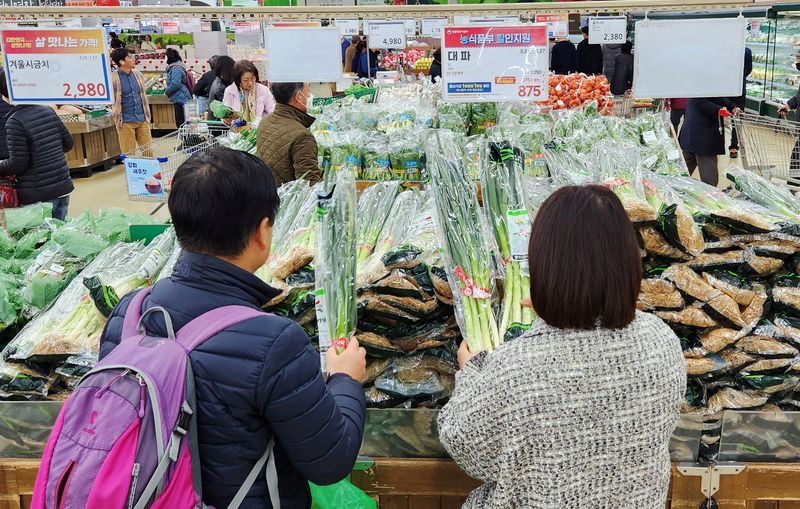SEOUL (Reuters) - South Korea's consumer sentiment dropped sharply this month to hit the weakest level in more than two years on growing worries about political uncertainty following parliament's impeachment of President Yoon Suk Yeol.
The consumer sentiment index fell to 88.4 in December from 100.7 in November, the lowest since the index hit 86.6 in November 2022, when 159 people were killed in a Halloween crowd crush, the Bank of Korea's monthly survey of consumers showed.
The Composite Consumer Sentiment Index falling below the threshold of 100 means consumers have turned pessimistic over the economy.
Thousands of protesters massed on Seoul's streets as the parliament voted to impeach President Yoon on Dec. 14 over his short-lived declaration of martial law on Dec. 3.
Tuesday's data, the first monthly indicator since the crisis erupted over the martial law decree, shows consumer confidence is fast fraying amid political divisions as constitutional justices are set to weigh up whether to formally remove Yoon.
In the days following Yoon's martial law declaration, the benchmark Kospi plunged while the South Korean won last week hit its weakest level in 15 years.

A sub-index on consumer spending outlook dropped by 7 points as "domestic political uncertainties worsened consumption sentiment across travel spending, dining out expenses and durable goods, which declined by 8 points, 6 points and 3 points, respectively," the BOK said in a statement.
Governor Rhee Chang-yong on Dec. 18 also said the political turmoil is weighing on the South Korean economy, and called for more fiscal support and other measures to ensure growth remains intact.

